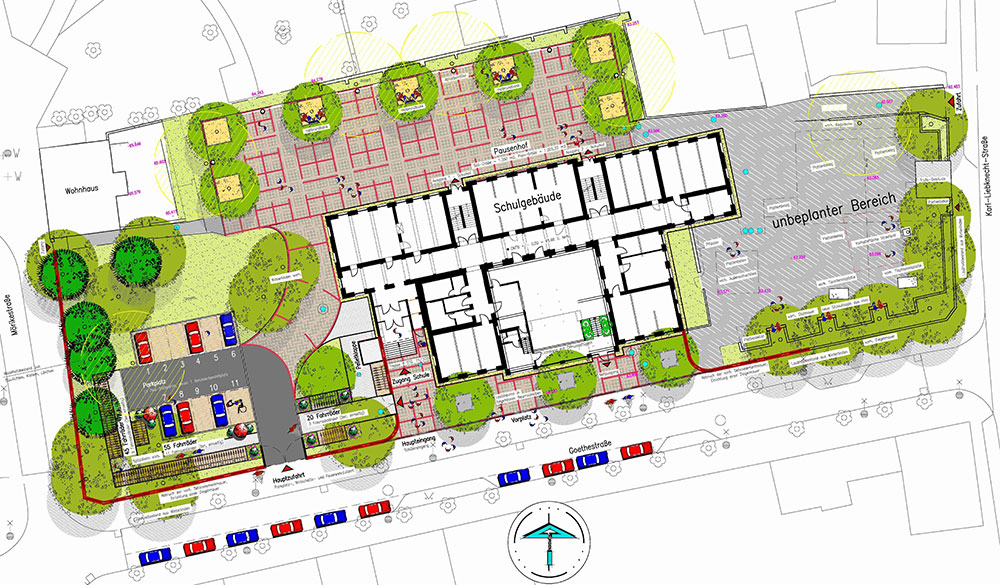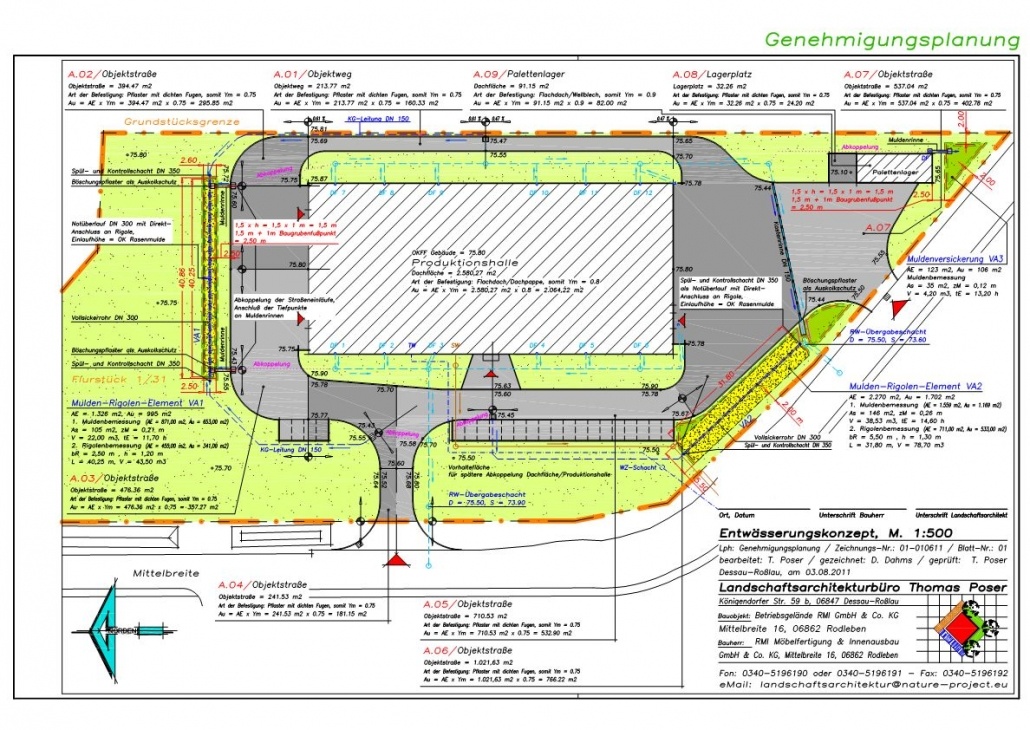In addition to the steadily growing proportion of new construction measures, the desire to decouple existing properties (from the public sewage network) can be observed with an increasing tendency.
Especially in industrial and commercial enterprises with large roof and traffic areas, the fee notices for rainwater disposal are increasingly being scrutinized.
Professional drainage planning in Leipzig will help you with this.
With the aim of finding financially viable solutions to reduce the sometimes considerable discharge fees, rainwater infiltration systems are increasingly being used retrospectively.
While new construction measures often already result in savings potentials compared to a property drainage system with a sewer connection, with decoupling measures (from the public sewer network), a positive economic feasibility assessment is only possible taking into account the saved (rainwater) fee income, since an existing and paid property drainage system is already available (with sewer connection) is used.
Experience has shown that decoupling measures are only profitable if expensive civil engineering work is dispensed with and the existing underground pipeline network can continue to be used to a large extent to feed the new infiltration systems.
This means that the selection of recognized types of infiltration (see “Things worth knowing”) is regularly reduced to the underground, more cost-intensive variants, which are then supplied with rainwater via the existing underground pipeline infrastructure, if necessary via appropriate pretreatment systems.
Experience has shown that future income from sustainable (rainwater) fee savings will also arise here in the medium term, if
The following is an example from our client file:
Drainage concept for the decoupling measure RMI GmbH (based in Dessau-Roßlau)
Profitability analysis (RW fees) for the drainage concept decoupling RMI GmbH::
In this project, the rainwater from all traffic and roof surfaces was completely infiltrated via two trough pipe trench elements and an infiltration trough.
The existing property-internal underground pipe network was disconnected from the public rainwater sewer and could continue to be used to feed the new infiltration systems.
The advantages of sustainable rainwater management are demonstrated in this project by comparing the investment costs of conversion (from sewer connection to infiltration) and the subsequent chronological income from the fee savings:
The total conversion costs (disconnection costs and production costs of the infiltration systems) amounted to around EUR 23,000.
The costs for the conversion (from sewer connection to decentralized infiltration)
are amortized for RMI GmbH from the resulting (rainwater) fee savings after 6.7, i.e. around 7 years.
And the problem of rainwater fees is thus history for RMI GmbH Dessau-Roßlau.



